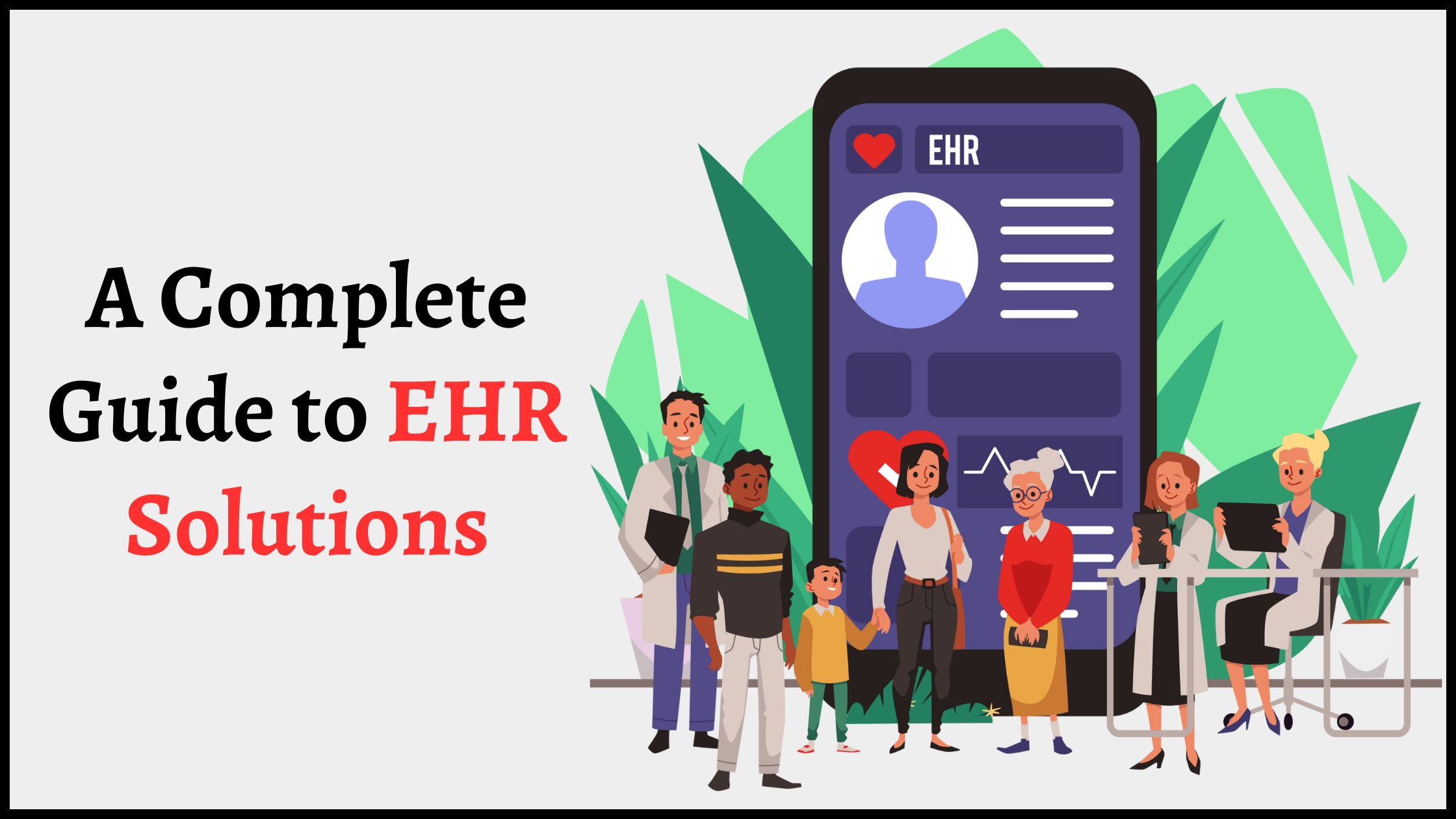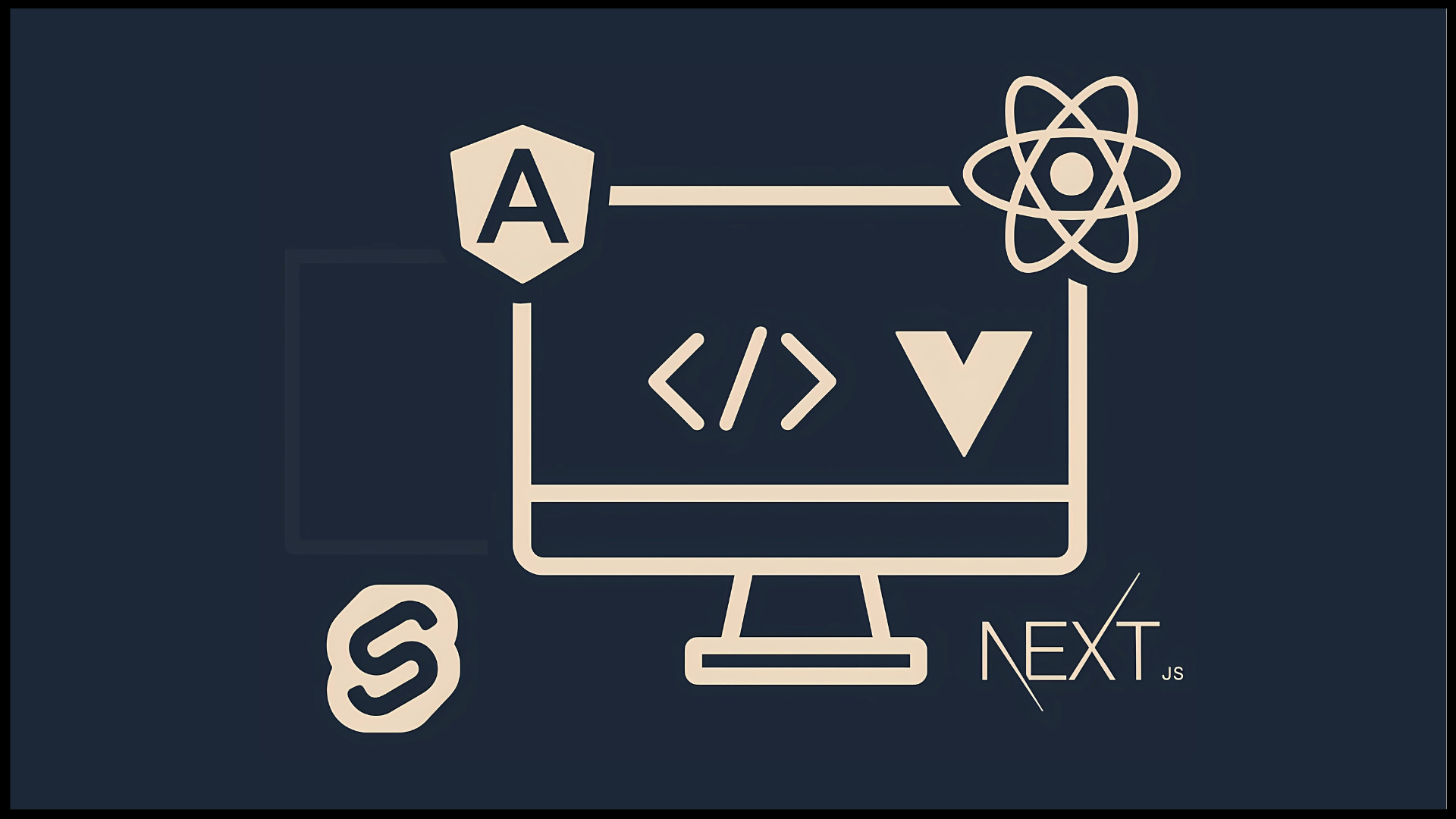- Overview of EHR Systems
- Types of Electronic Health Record Systems
- Features of EHR Systems
- Benefits of EHR Systems
- SaaS vs. Custom EHR Systems
- Key Considerations on Choosing the Right EHR Systems
- The Process of Implementing EHR Systems
- Cost of Developing EHR System
- Challenges and Limitations of Electronic Health Record Systems
- Future Trends of EHR Systems
- How can CSSChopper Help you Build a Working EHR System?
Earlier, managing patient records and everything related to them was a frustrating and time-consuming venture. All the processes required long hours of manual work, which was sometimes inaccurate. It has caused several problems, like misleading patients with wrong information, incorrect treatment, medication issues, etc. This directly impacts the credibility of a hospital and leads to a loss of trust among patients and the community.
Hence, it becomes essential to maintain accurate and reliable patient information for delivering quality care and upholding the hospital’s image. This is where the introduction of EHR systems has changed how all these processes were done earlier. These help digitize patient information, making accessing, sharing, and updating records easier. Over 95% of the hospitals have adopted the usage of EHR, which showcased a 41.87 billion boom by 2033 in its market size.
However, choosing the right EHR system for a hospital remains a challenging task. Healthcare professionals face issues like high costs, user difficulties, security, or integration problems. The ideal way to find a preferable solution is by opting for bespoke software development services. Experts will understand your requirements and help you develop a need-based EHR system.
Overview of EHR Systems
These specifically designed software systems have digitized how information has been used and consumed in the healthcare sector. You can structurally collect, store, and maintain data in these software solutions. Unlike separate paper-based records for different information, like diagnosis, treatment plans, medications, and others, EHR provides centralized access to all these records. This way, ER solutions can improve the accuracy and accessibility of patient records, which results in streamlining the workflow.
Types of Electronic Health Record Systems
The market is filled with various electronic health record systems, each with benefits and disadvantages. This can easily confuse one who is in pursuit of an EMR solution. Here are some of the most common EHR types a healthcare professional should consider:
1. Cloud-based
These can help store data efficiently on the cloud server. With cloud-based EHRs, you can easily access the stored data online. This improves the accessibility and scalability of a web solution. The benefit of cloud-based EHRs is that healthcare professionals can easily access patient data on a remote server. These are highly suitable for small to medium-scale hospitals.
2. On-Premise
Unlike cloud-based EHRs, on-premise solutions are not stored on a remote server; they are installed, maintained, and run on a hospital’s own server/computer. Simply put, these are stored locally, and the technology solution partner with whom hospitals have partnered maintains this. These provide greater control and security over the data and are highly suited for large practices that require high-end security protocols.
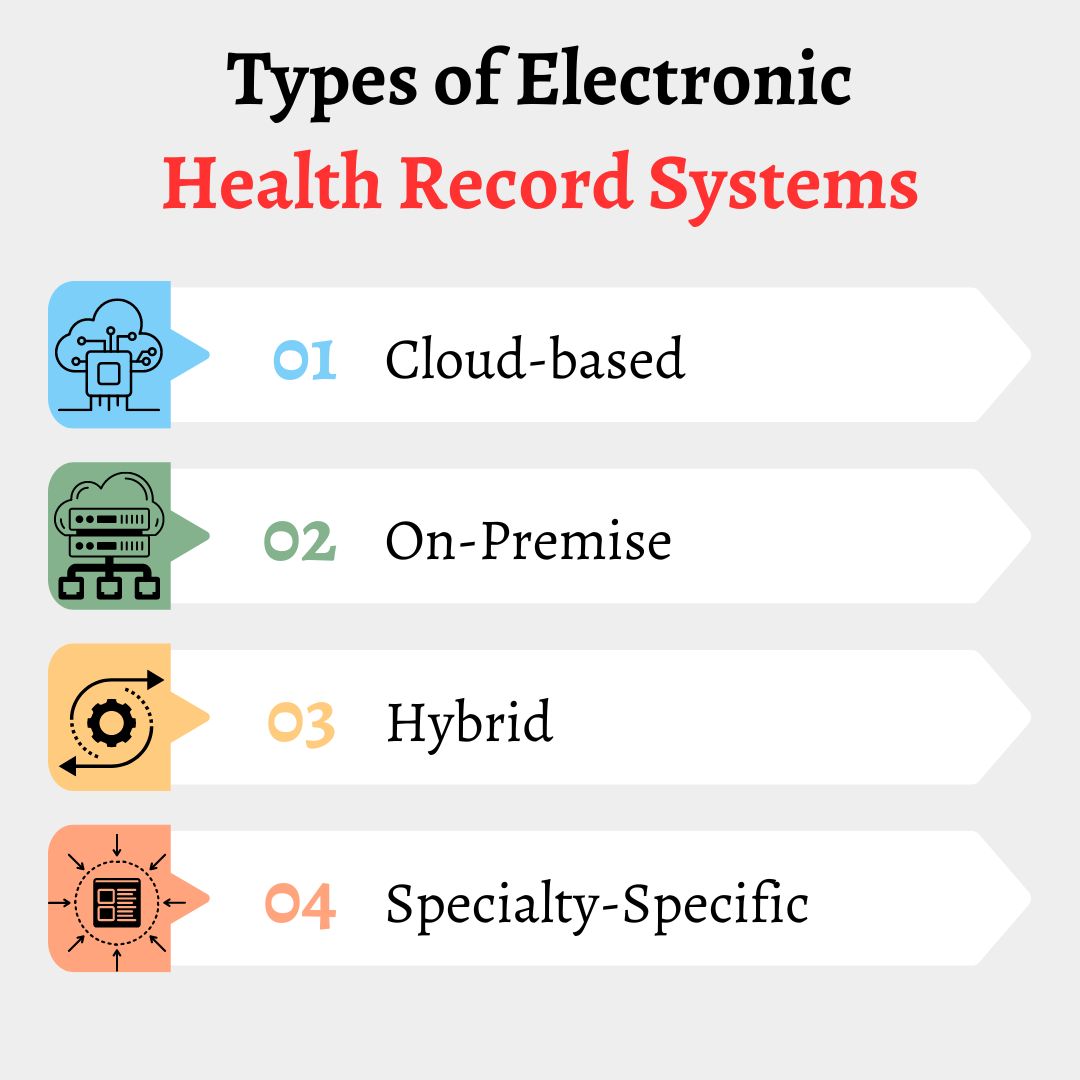
3. Hybrid
Hybrid EHRs are a great choice because they combine the capabilities of both cloud-based and on-premise solutions. You can store your data locally and utilize the power of a cloud server for other functionalities, providing greater control and flexibility.
4. Specialty-Specific
If you still haven’t found the right EHR type for your project, developing one with specific functionality is ideal. Since you are creating one specific to your area’s specialties, these offer specialized workflows and features. Custom software development allows you to tailor it to meet the particular area of medicine.
Features of EHR Systems
Whether an EHR or any tailored software can only work splendidly because of its features. An impactful solution for your hospital, features play a game-changing role in its success. Here are some of the common features that every Electronic Health Record System should have:
1. Patient Management
It is crucial to manage patients’ data for a streamlined flow of information. Your software solution must include this feature. Patient management features should include varied operations like registration, admission, departure, treatment, and medications of patients. You can access any required data to better understand a diseased person. At the reception desk, there must be robust software to enter all the patient’s information, like address, insurance, phone number, etc., by allocating specific IDs to different patients as a medical record.
2. Clinical Records
Do not miss out on including clinical records features in your electronic health record software. This can enhance the management of patients and help allocate dedicated care teams. The clinical record feature can assist in providing the right treatment type as per the requirements of a patient. Not only that, this feature is also beneficial for doctors who majorly sit in their clinics. They can record any patient’s data and provide them with the right medications, even if a patient comes after years.
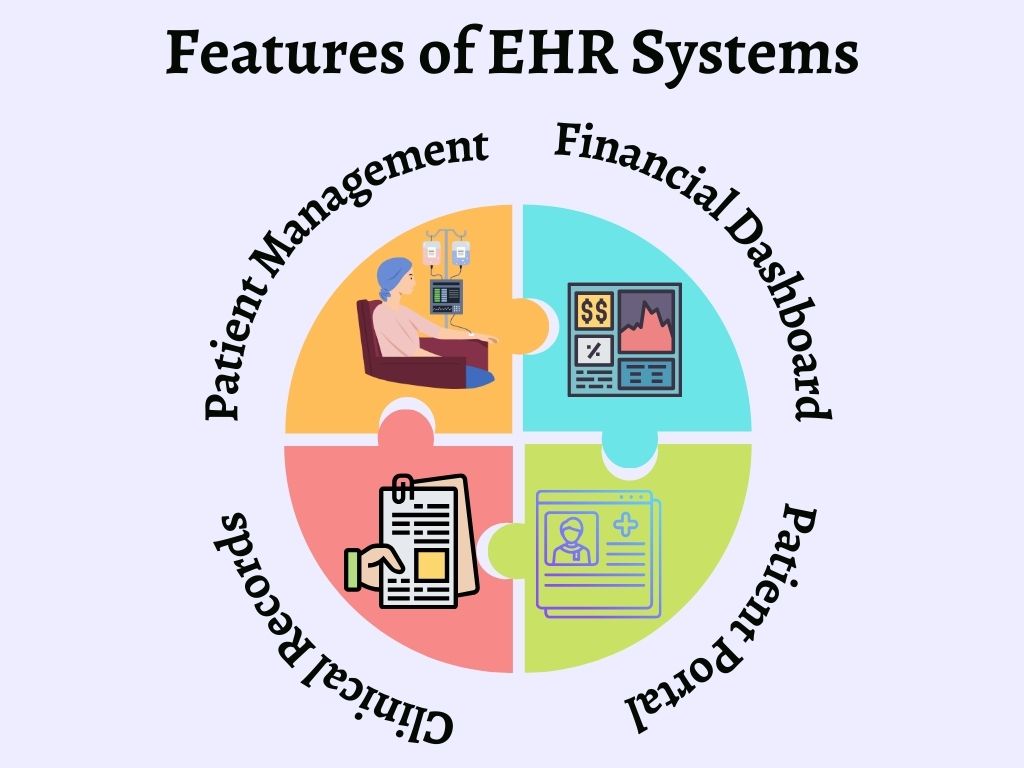
3. Financial Dashboard
With this feature’s help, you can evaluate the hospital’s profitability and productivity. You can track various things like how much charge is left on which patient, how much doctor’s visit is spent, additional charges, and more finance-related queries. This feature can potentially provide more value rather than just maintaining all the billing records perfectly.
4. Patient Portal
You can add a patient portal to your tailored software solution. This could be similar to a profile-type feature where patients can see their information, including name, age, disease type, and others. Not only this, but they can also assess the room they have allocated, how much the per day charges are, which doctor is treating them, what the prescribed medications are, and more. By adding this feature, patients will have a proper understanding of their disease and how long it will take to recover.
Benefits of EHR Systems
Now that you are familiar with the concept of the Electronic Health Record system and its types, it becomes vital to have a clear understanding of what benefits it provides to hospitals and patients. Let’s understand each one of them:
A. How Advantageous are EHR Solutions for Hospitals?
These software solutions provide many benefits for hospitals, from improving patient care to enhancing data security. Some of them are as follows:
1. Improved Patient Care
With the advent of this EHR software, hospitals will have all the required information about their patients. Each of the minute details is up-to-date in this solution, guiding healthcare practitioners to treat patients accordingly. This way, they can make informed decisions about various things, like when to change medications.
2. Increased Efficiency
This software allows easy access to healthcare professionals, which enables them to update the patient’s information in real-time from anywhere at any time. Doctors or medical departments can have quick access to the records for more coordinated and efficient care of the patients. This way, the electronic health record systems improve the efficiency of the operations.
3. Reduced Manual Errors
The advent of electronic health record softwares has reduced the manual toil. This has also minimized manual errors, which earlier was the bottleneck for the healthcare sector. Because of this, hospital owners can more effectively diagnose patients without having to redo all the work (if there’s any error in manual work).
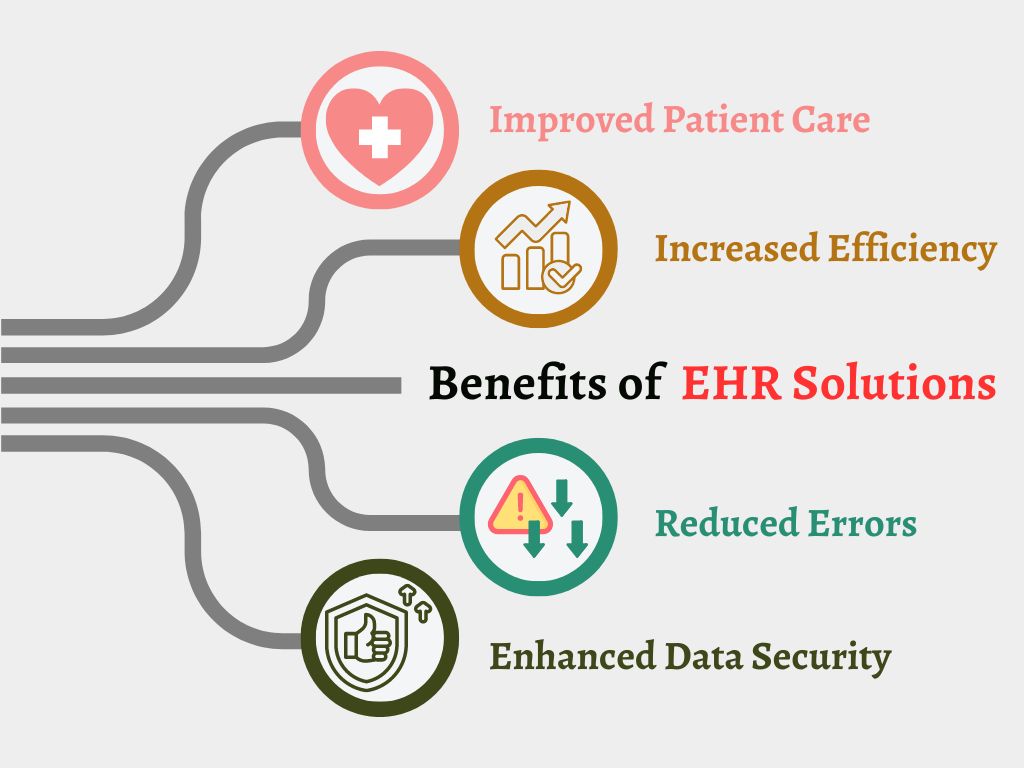
4. Enhanced Data Security
Manual maintenance of data might be prone to various threats, within which security and privacy remain primal. Anyone can easily access the patients’ information (even non-shareable or if anything serious or non-shareable). This would have serious repercussions for the hospital. Here, the EHR solution can work effectively fine. Software is always packed with the latest security features that can safeguard patient information.
5. Better Communication
Electronic health record systems play an important role in improving communication and collaboration within healthcare. This is because of the sense of security these solutions provide to hospitals. Moreover, the centralized way of holding all the information provides healthcare professionals with updated information and improves the risk of miscommunication and errors.
B. Electronic Health Record System Advantages for Patients
EHR solutions are highly helpful not only for hospitals, doctors, and staff members but also for patients. From better patient care to availability at all times, these software solutions provide various advantages.
1. Improved Access to Healthcare
Patients can track the status of their reports from anywhere at any time. Unlike traditionally, where for knowing about the reports one has to stand in a long queue and wait for hours by taking leave from their offices or important work for their number. This was a time, effort, and resource-taking process. Integrating Electronic Medical Reports (EMR) on EHRs greatly benefits patients in finding their reports online comfortably. This has also improved communication, as they can interact with healthcare providers regarding their health. Moreover, the check-in process has been improved by this and reduced paperwork.
2. Better Quality of Care
The easy accessibility of health status has worked like a guide for patients in making informed decisions about the type of food they can eat, from when they can start working to how many days more a disease will take. Also, electronic health records can provide alerts for timely screening, check-ups, vaccinations, and more, providing preventive care reminders.
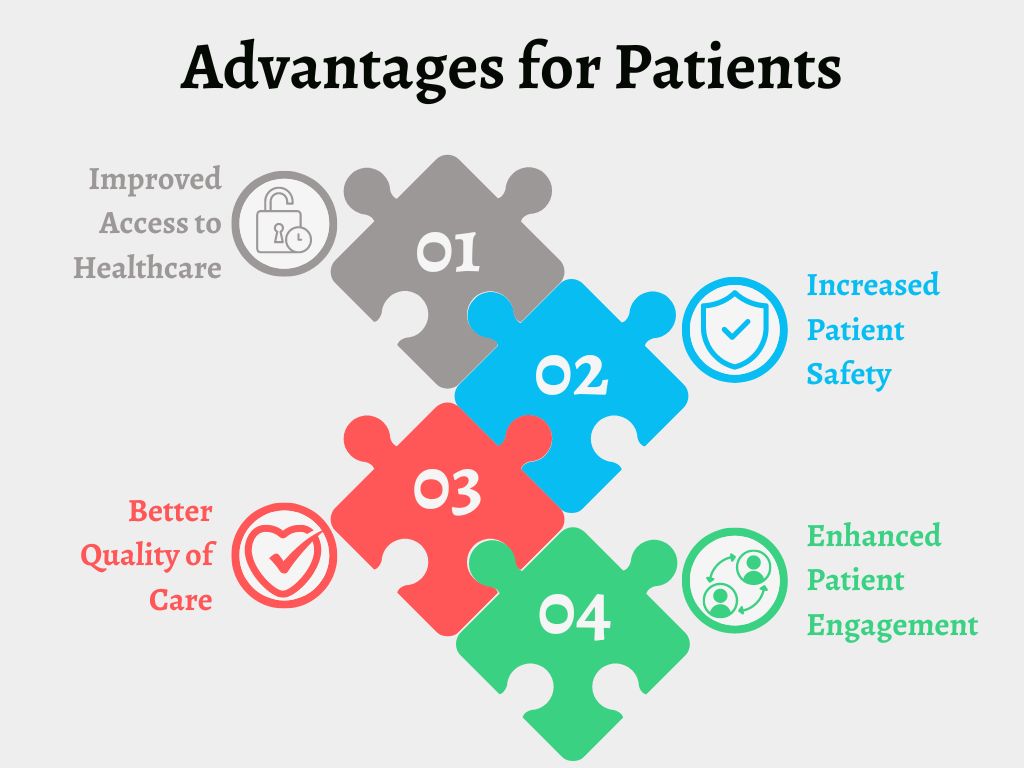
3. Increased Patient Safety
The updated information can guide doctors and medical staff to provide only the right medications, reducing medical errors. If there’s any emergency, patients can collaborate with hospital staff, and based on which preventive measures will be taken by the team. Moreover, a patient can be allergic to certain medications, and in case of this, they can coordinate with them and accurately get rid of allergies. This way, EHRs help in improving patient safety.
4. Enhanced Patient Engagement
EHR systems allow patients to communicate with doctors or staff members. This means one can tell the healthcare professional about his/her health needs and ask for a personalized treatment plan. Also, they can access the information that provides details about their condition and treatment.
SaaS vs. Custom EHR Systems
Both are different types of electronic health record systems that offer advantages over one another and cater to different healthcare organizations. Let’s understand:
| Particulars | SaaS EHR System | Custom EHR System |
| Cost | Majorly subscription-based | Generally requires higher development cost |
| Implementation Time | It can be deployed quickly, within weeks | Deployment takes time because of specific features and functionalities |
| Customization | Offers less customization with provided templates. | Tailored software solutions can be customized to meet the preferred needs |
| Scalability | SaaS-based EHRs are scalable, but it depends on the architecture of the solution. | Custom solutions are highly scalable |
| Maintenance | Everything is managed by a particular service provider, from bugs to updates. | This requires the presence of an in-house team for maintenance |
| Integration | Offers pre-built integrations with other SaaS tools | It can be integrated with other tools, but development requires |
| Data Security | Provides an optimum level of security | Generally, custom development is secure, but it depends mainly on the requirements. |
| User Interface | A basic standardized user interface may not fit everyone | Fully customizable user interface developed as per the requirements |
| Flexibility | Flexibility is limited to certain features only | Custom software development provides high-end flexibility |
| Data Ownership | Vendors can access and manage your data, which means healthcare organizations do not have full control over it. | Custom electronic health records systems offer full ownership and control over data. |
| Suitability | Suitable for smaller practices or those looking for immediate implementation | Anyone can utilize it, but it is highly suited for large healthcare organizations with specific needs and a dedicated IT team. |
Key Considerations on Choosing the Right EHR Systems
Healthcare organizations can face various problems when choosing the right EHR system. This is because the presence of varied software solutions in the market creates confusion, but this confusion can be sorted out if one considers some key points before deciding on the right software. These are as follows:
1. Ease of Use
The EHR solution must have an intuitive and user-friendly interface. This will ensure that all the members of a team can easily utilize the software without any hurdles. A complex UI can create trouble, which results in lower productivity.
2. Budget
Align your budget with the requirements of your EHR solution. It is crucial to perform a market search and then evaluate various solutions by keeping your budget in line. You should keep an eye on not only its prices but also other factors, from ongoing maintenance to support. Hence, the point is that you should consider both upfront and long-term costs.
3. Security
It is essential to reserve patient and hospital data. When you are selecting one for your hospital, pay a major focus on the security of an EHR system. Choose the one that complies with the healthcare regulations like HIPAA.
The Process of Implementing EHR Systems
Implementing an electronic health record system for your hospital can be complex. This requires proper planning and careful execution. Here are the steps that can help you along in the process:
1. Assess Needs
Before the implementation process, being well-vested with your needs is vital. The ideal way of finding this is to consider questions like:
- Do you require a quick implementation of the software?
- Do you have a dedicated support team?
- Is your hospital large or small?
- What features are required?
This will ensure that the system you choose must align with your needs.
2. Research and Select
It is crucial to research diverse EHR solutions and vendors. Consider comparing features, costs, and reviews to find a suitable solution for your requirements. Also, you can schedule demos to see how a particular software will work if adopted. Hence, it becomes crucial to align yourself with a system that is user-friendly and adaptable to the requirements.
3. Customization
Once you select a solution for your hospital, indulge in the process of customizing it. The actual work starts in this process, and working with a technology partner is no exception. The tech partner can provide invaluable customization expertise and complete the setup as per the requirements.
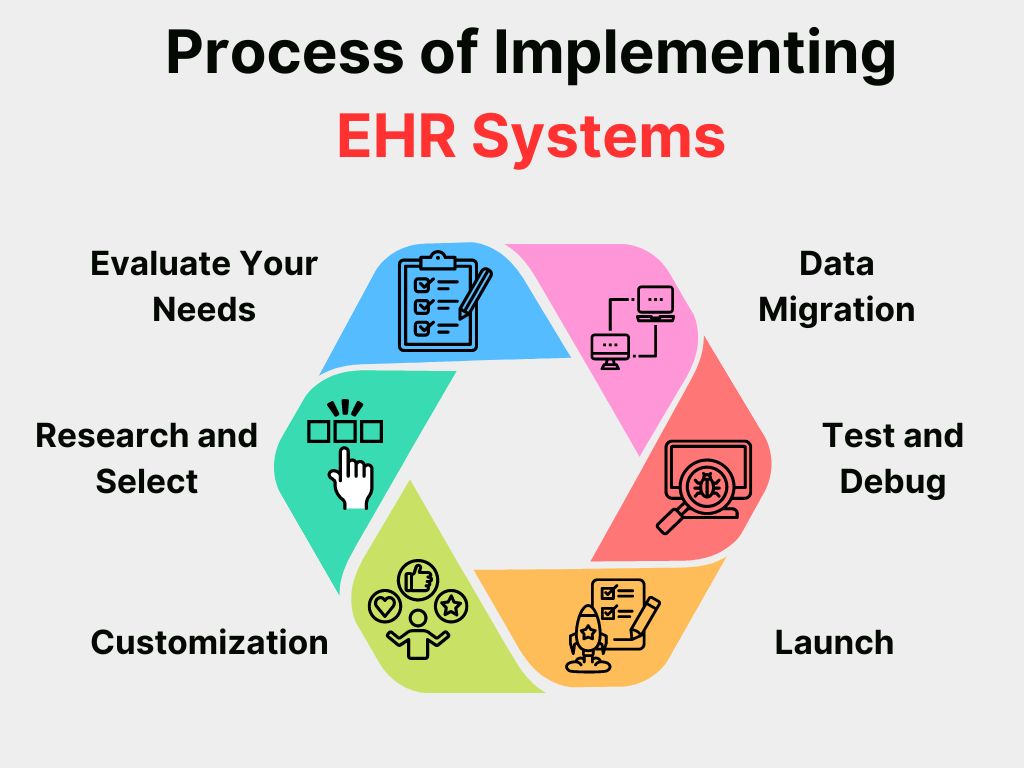
4. Data Migration
After completing the system setup, it becomes essential to migrate paper-based data to your software solution. You must complete this process cautiously and precisely because data is invaluable, and even a minor error can create a bigger challenge later.
5. Test and Debug
Testing is crucial for finding any hidden errors or different vulnerabilities. The team you will hire performs the crucial steps required, like evaluating the design, checking on features, and determining other related factors. It will be resolved quickly if they find anything suspicious during the process.
6. Launch
After removing all the flaws from the EHR system, the quality assurance team will be ready to launch the solution and improve the workings of healthcare organizations.
Cost of Developing EHR System
Now that you have understood the implementation process and how to choose the right electronic health record system for your hospital, you must be eager to know how much it costs to develop one. It depends on factors like:
1. Direct Costs
These are the costs that directly affect the development process. These include:
a. Development
You must hire a software development company to complete the development. Depending on the complexity and features required, it would cost around $20,000 to $90,000 or more.
b. Licensing
For cloud-based (SaaS) EHR systems, the cost of hosting and subscription can vary from $1,000 to $15,000 annually, depending on the service provider.
c. Testing
Comprehensive testing is required to ensure the system works efficiently. It can cost somewhere between $8000 to $15000.
d. Compliance and Certification
It is crucial to ensure that the system complies with the best security regulations like HIPAA, which may cost $15,000 to $40,000. Also, certifications from relevant bodies like ONC can add an extra $20,000 or more.
2. Indirect Costs
When implementing an EHR for your hospital, indirect costs can be considerable. It is wise to keep the cost in the loop. Therefore, you must include the cost of training end-users and IT staff, deployment-related expenses, data migration costs, ongoing maintenance, and technical support costs.
Overall, the total cost of development will be around $90,000 to $9,00,000 or more, depending on the project’s scope and complexity. Also, include the cost of annual cloud services, which can be between $15000 and $50000. However, you should consider various factors that can impact the overall cost of EHR development.
Challenges and Limitations of Electronic Health Record Systems
Electronic health record systems have varied challenges and limitations. This can be solved as these softwares will be improved. However, here are a few of the main challenges of EHR systems:
1. Data Security Concerns
Sometimes, storing patients’ sensitive information in an EHR becomes difficult. Data breaching is a potential concern and one of the biggest challenges of these systems.
2. High Initial Costing
When you are setting up your EHR, the cost of initial setup is extremely high. This restricts smaller practitioners from applying this software solution in their practice. From hardware to installation, you have to incur every cost.
3. Interoperability Issues
It is not always possible for every healthcare record-keeping software to be fully interoperable. This means that not every system can communicate effectively with other systems. As a result, it will lead to fragmented patient data.
Future Trends of EHR Systems
Electronic healthcare record systems provide various benefits, but their challenges have made healthcare practitioners uncertain about whether to apply them. However, its future seems bright, with various upcoming trends that can help remove this uncertainty. Here are some of them:
1. Telehealth integration
The wide adoption of telehealth has paved the way for EHR systems to integrate it. This integration can improve patient management and also upscale their care. Patients can remotely access their health information and various other things with this.
2. AI Integration
EHR systems can be integrated with the transformative powers of AI. This will aid in improving the predictive analysis, automating routine tasks, enhancing decision-making, and various other ways.
3. Blockchain for Security
Blockchain is considered an ideal technology to improve the security of digital patient records. This is because of its decentralized nature and tamper-proof data storage method. Moreover, patients can control providing access to their data.
How can CSSChopper Help you Build a Working EHR System?
CSSChopper has helped various healthcare professionals to develop their own EHR systems. Our web developers are well-versed in all the rules, compliance, and security best practices. We are a known name in the healthcare sector because of our team’s ability to deliver future-centric web solutions.
Moreover, we focus on staying updated with the upcoming technologies and methods to provide out-of-the-box services. Our team can assist you in developing and implementing a working electronic health record system for your hospital. Collaborate with us to start your EHR journey.
Categories
Recent Posts
Popular Posts
- How to Choose a Reliable Offshore Development Partner?
- Transforming Web Development with HTMX’s Declarative Approach for Dynamic UIs
- How to Outsource Web Development in 2025: Complete Guide
- What are the Top Web Development Trends for 2025?
- 5 Important Aspects to Consider When You Hire a PHP Developer

